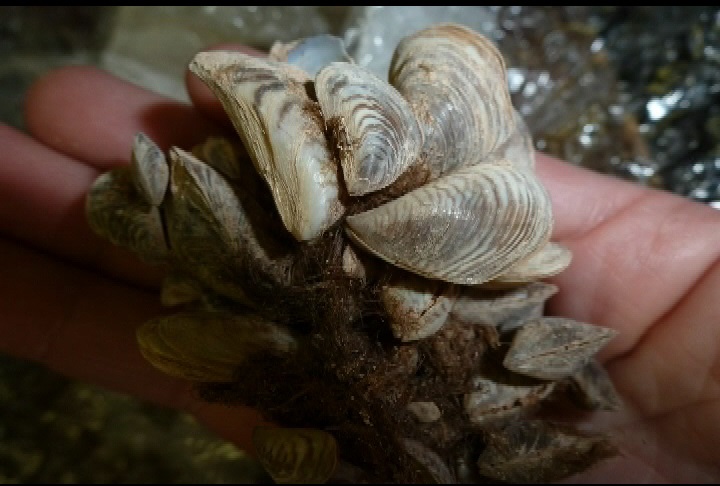If zebra and quagga mussels are introduced into the Okanagan, don’t expect the Okanagan Basin Water Board (OBWB) to come to the rescue.

The group has put out a position statement and one of the seven points says “The OBWB will not accept responsibility for the long-term treatment, mitigation or control of zebra or quagga mussels if the province fails to enact appropriate prevention measures, and consequently the species are introduced.”
OBWB chair, Doug Findlater says they don’t want to see the responsibility of dealing with the mussels download.

Get daily National news
“The OBWB spent $10-million over the years on controlling eurasian milfoil, the last major invasion of invasive species into the lake system in the Okanagan,” says Findlater. “We are saying we would not like another download when we think it is preventable, if they put in place a proper inspection program.”
Read More: Invasive mussels intercepted on boat bound for Sylvan Lake
Worried that boats from other jurisdictions could spread the mussels to B.C., the organization is continuing to push the province to set up permanent inspection stations.
“We’ve identified five major routes…where the traffic moves between Alberta and B.C. and boats are likely to come from. We think we need roadside checks,” says Findlater. “In B.C. we have three roving stations, yet we have five roads in from Alberta that really need to be covered. We are taking chances there that we are very concerned about.”
Read More: Okanagan film maker takes up anti-zebra mussel cause
If the mussels did spread to the Okanagan, the OBWB believes the local cost could be over $43-million annually.








Comments